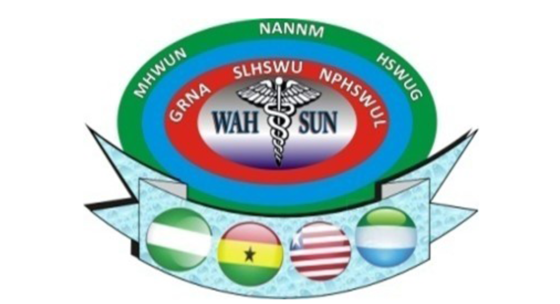Reaching for ‘Highest Possible Health Standards’

— WAHSUN wants collaboration to strengthen universal public health systems in West Africa
The West African Health Sector Unions Network (WAHSUN) is calling for concerted efforts that would strengthen universal public health systems in West Africa, as the bedrock of health emergency preparedness.
The concern, was made on the occasion of the West Africa Health Organization's (WAHO) 35th anniversary in a statement issued recently by the National Health Workers Union of Liberia (NAHWUL) and was signed by Mr. Perpetual Ofori-Ampofo, chairperson of WAHSUN.
NAHWUL is a member of WAHSUN and as such, the statement is intended to draw the attention of governments in the sub-region including Liberia.
“We recall the establishment of WAHO as a specialized institution of the Economic Community of West African States (ECOWAS) on July 9th, 1987,” said WAHSUN.
According to WAHSUN, the overarching objective of WAHO at its inception was to enable “the attainment of the highest possible standards and protection of the health of the peoples in the sub-region through the harmonization of the policies of the member states, pooling of resources and cooperation with one another” is more relevant today than ever before in the light of the COVID-19 pandemic.”
The West African Health Sector Unions Network (WAHSUN) since its inception on 9th November 2008, has consistently called for improved public funding of public services and delivery of quality and safe health in all ECOWAS member states for the achievement of quality public services and the attainment of Universal Health Coverage in West Africa.
WAHSUN also attributed the inadequate budgetary allocation for health by virtually all the governments of almost all the WAHO member states to ill-equipped and grossly understaffed health care facilities within the sub-region.
“Although there is a pressing need to scale up funding of health as a central plank of the pandemic response, no single West African country expanded up to 10% of its annual budget on health within the past few years even though heads of state of West Africa, as with all other parts of our great continent, committed to setting aside 15% of their budgetary provision for health in the Abuja Declaration of 2001, WAHSUN said, “while we were not unscathed, it cannot be denied that Africa was spared the worst of the impact of the Covid-19 virus, and knowing the parlous state of the health care systems in our countries we can only thank God for this.”
WAHSUN released continues, “We cannot afford to be complacent because we might not be that lucky when the next pandemic hits.
“When we look around the world, countries with stronger universal public health systems have been able to weather the COVID-19 storm.”
WAHSUN added, “We have to draw inspiration and lessons from their experiences and therefore call on the ECOWAS Member States to be on the frontline of the global discourse to shape the post-COVID-19 world, whilst continuing to stand up for an equitable transcendence of COVID-19 as a pandemic.
“We need to be bold in putting forward our concerns for inclusion in the envisaged World Health Organization ‘Pandemic Treaty’ as the Intergovernmental Negotiating Body ramps up consultations.”
These concerns include the need for suspension of intellectual property rights on ‘pandemic products’ to be triggered by the declaration of a Public Health Emergency of International Concern (PHIEC).
“We also need to highlight the importance of international solidarity as the cornerstone of international relations and putting a stop to International financial institutions offering loan facilities that constrict the fiscal policy space of governments,” WAHSUN noted.
According to WAHSUN, WAHO has a great opportunity as well as a responsibility at this hour and so WAHSUN would like to urge WAHO and its Member States to rise to the demands of the moment and history.
However, WAHSUN said, as an organization of health sector trade unions, with its members as health sector workers, believe that they can altogether build quality public health care systems for all, and build stronger Member States of WAHO and a stronger West African Health Sector Unions Network.
